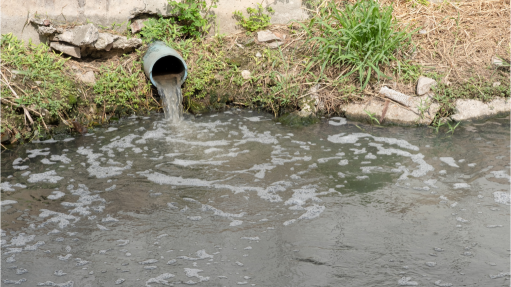
PARAMOUNT IMPORTANCE Given the pressing need for reliable and efficient sewer systems, the selection of materials for pipelines is of paramount importance
To address the challenges of water scarcity, sanitation inadequacies and the need for efficient waste management there is ongoing reassessment of the materials and technologies used in infrastructure projects, says industry association Southern African Plastic Pipe Manufacturers Association (Sappma) CEO Jan Venter.
Within this reassessment, plastic pipes have become notable for their durability and cost- effectiveness, making them an important element in the construction and modernisation of water, sanitation and sewage systems globally.
This shift towards plastic pipes reflects a strategic response to critical environmental and public health challenges, emphasising the role of advanced, practical materials in enhancing infrastructure resilience and functionality, says Venter.
He advocates for the use of plastic pipes, particularly polyvinyl chloride (PVC) and high-density polyethylene, citing the advantages as being longevity and ease of maintenance, trumping traditional materials such as steel and concrete.
“The practicality of plastic pipes extends beyond their material properties. Their adaptability to labour-intensive construction techniques offers a potentially more affordable option for communities, especially in areas where the costs of traditional materials and maintenance are prohibitively high,” Venter explains.
Meanwhile, sustainability is another key factor in the conversation about infrastructure material choice.
Venter highlights how multilayered PVC pipe systems can incorporate recycled materials without compromising on their structural integrity or performance.
This approach not only aligns with global environmental conservation goals but also contributes to the circular economy by reducing waste, he explains.
Additionally, Venter points out that corrosion resistance stands out as a significant advantage of plastic pipes.
“In the context of sewer and effluent systems, the ability of plastic to withstand corrosive environments ensures longer service life and fewer disruptions owing to maintenance and repairs,” he explains.
However, despite these advantages, Venter notes that challenges such as the use of inferior raw materials and the complexities of continuous production monitoring underscore the need for stringent quality controls.
Therefore, Venter highlights continuous research and development as essential for advancing the material properties and processing techniques of plastic pipes.
This ongoing innovation, coupled with the adherence to international product standards, is critical for meeting the evolving demands of water, sanitation and sewer networks, he concludes.